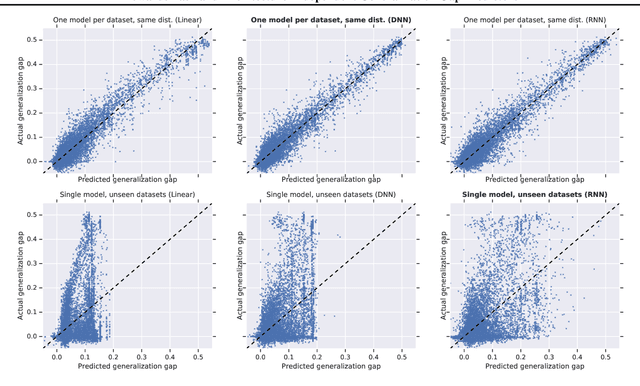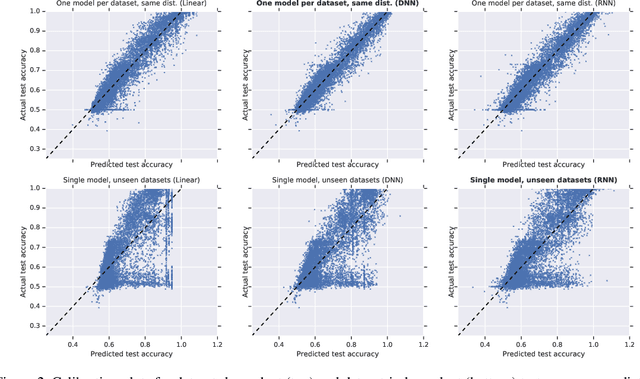Towards Task and Architecture-Independent Generalization Gap Predictors
Paper and Code
Jun 04, 2019



Can we use deep learning to predict when deep learning works? Our results suggest the affirmative. We created a dataset by training 13,500 neural networks with different architectures, on different variations of spiral datasets, and using different optimization parameters. We used this dataset to train task-independent and architecture-independent generalization gap predictors for those neural networks. We extend Jiang et al. (2018) to also use DNNs and RNNs and show that they outperform the linear model, obtaining $R^2=0.965$. We also show results for architecture-independent, task-independent, and out-of-distribution generalization gap prediction tasks. Both DNNs and RNNs consistently and significantly outperform linear models, with RNNs obtaining $R^2=0.584$.
 Add to Chrome
Add to Chrome Add to Firefox
Add to Firefox Add to Edge
Add to Edge